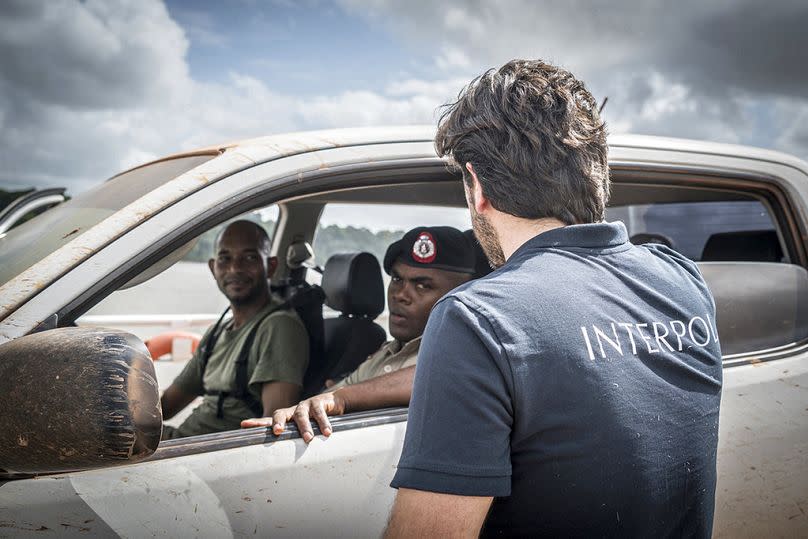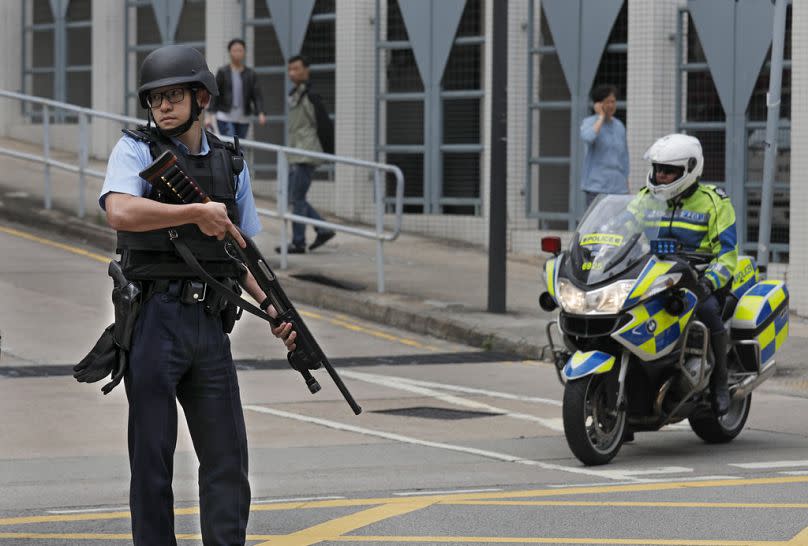To make the world a safe place for all, Interpol needs to embrace all perspectives

This year marks a critical moment for INTERPOL, as the selection of the next secretary general will shape the future of global security. This election is not just about leadership; it’s about safeguarding our world.
The chosen leader will play a crucial role in reimagining and strengthening our collective efforts to combat international crime and protect people worldwide.
As I reflect upon my trajectory through years of service with the Brazilian Federal Police and my decade-long dedication to Interpol, culminating in my current role as its vice president for the Americas, I am filled with a profound sense of purpose and vision for the future of this vital organisation.
The threats we face today are increasingly complex and wide-ranging. Transnational crime has evolved, requiring Interpol to be more agile, innovative, and inclusive. My journey with the organisation has clearly demonstrated to me the transformative impact of Interpol's work in tackling global crime.
Yet, despite our successes, we must acknowledge that the road ahead demands improvement, as well as dedication to Interpol's ultimate mission: making the world a safer place for us all.
Rotating leadership to represent everyone
One of the most pressing challenges Interpol faces today is its need for a broader, more faithful representation of the countries it serves.
Historically, leadership within Interpol has been concentrated in only five countries whose experiences with crime are remarkably similar: Austria, France, Germany, the UK and the US.
This has inadvertently limited Interpol's ability to fully represent and address the diverse needs of its 196 very different member countries.
For Interpol to truly serve all nations, every country must have a voice. Leadership within Interpol must rotate to ensure all countries are represented, especially those with unique security challenges.

Crime in developing nations differs greatly from that in developed regions, and it requires leaders who understand these differences to address issues effectively.
By embracing diverse perspectives, we can collectively combat organised crime, human trafficking, environmental and financial crimes, and child exploitation, ultimately enhancing global security.
Interpol is seeking public's help in European cold case murders
How has INTERPOL's role in the fight against organised crime evolved?
Equally vital, Interpol must remain a technical platform impervious to political interference to maintain its integrity and effectiveness. Internal mechanisms and safeguards must be strengthened to protect against the misuse of its tools and databases.
This approach will reinforce global confidence in Interpol as a reliable and impartial organisation dedicated to enhancing public safety and security.
Innovation is the future
A key challenge for Interpol is addressing the capacity gaps in law enforcement agencies worldwide, particularly in developing regions.
Many of these agencies face significant hurdles, such as outdated technology, limited resources, and inadequate training, which impede their ability to effectively combat advanced transnational crimes.
To overcome this, Interpol must enhance its capacity-building efforts. This means implementing region-specific training programs, supplying modern tools and technology, and promoting a culture of ongoing education and adaptability. By bolstering these agencies, Interpol can create a more unified and robust global crime-fighting network.

The future of Interpol also relies on innovation. As modern crime takes advantage of the latest technologies and discovers innovative ways to operate in an increasingly open and borderless society, it is vital for police to stay one step ahead.
From cybersecurity to artificial intelligence, Interpol must support member countries in enhancing their capabilities to tackle emerging threats. Equipping police with cutting-edge tools and resources is essential.
We should set the record straight on Interpol and its Red Notice system
Interpol is setting up its own metaverse to learn how to police the virtual world
By fostering technological advancement and collaboration among member countries, Interpol can help create a unified front against the sophisticated tactics used by modern criminals, ensuring global safety and justice.
Neutrality, dedication, vision
Finally, it is crucial to create a clear plan for collaboration between Interpol and regional law enforcement bodies, such as AFRIPOL, Ameripol, ASEANAPOL, Europol and GCCPOL.
Enhancing these partnerships will significantly improve global crime-fighting efforts. A strong cooperative framework will help Interpol unify international efforts against transnational crime, eliminate overlap, and reinforce its role as the leading authority in global police cooperation.
The path forward demands neutrality, dedication, and visionary leadership.
As we near the decisive moment of appointing a new secretary general, I am fully prepared to lead Interpol towards a transformative future. My commitment is to reshape the organisation into one that not only tackles the challenges of today but also anticipates and prepares for tomorrow's threats.
Together, we can embark on this journey with determination, confident that the future of international law enforcement is bright and filled with potential for all police forces, regardless of their location.
Valdecy Urquiza serves as Interpol Vice President for the Americas.
At Euronews, we believe all views matter. Contact us at view@euronews.com to send pitches or submissions and be part of the conversation.

